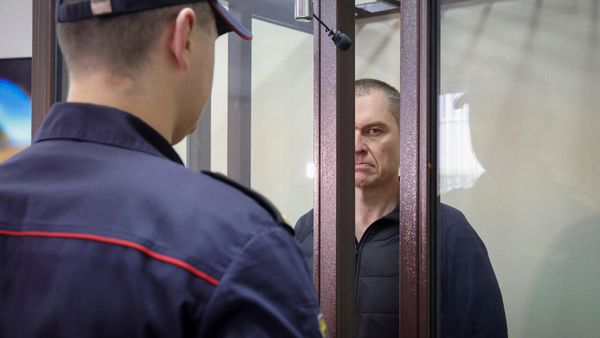Eli Lilly stock tumbled Thursday on what one analyst called a "once-in-a-blue-moon" miss for its obesity franchise after the company's daily pill lagged expectations.
Over the course of 72 weeks, patients who took orforglipron every day lost up to 11.5% more body weight than the placebo group. That trailed the 12% to 13% placebo-adjusted weight loss patients experience when they use weekly shots of Novo Nordisk's Wegovy.
The results outweighed Eli Lilly's beat-and-raise in the second quarter and helped boost shares of rivals Viking Therapeutics, Structure Therapeutics and Novo Nordisk. All three are working on obesity-treating pills.
Eli Lilly stock plunged 14.1% to 640.86, while Novo shares spiked 7.5% to 48.76. Shares of Viking surged 11.5% to close at 35.56, while Structure reversed early gains and fell a fraction to 16.20.
Competition Is Coming For Eli Lilly
Leerink Partners analyst David Risinger downgraded Eli Lilly stock and slashed his price target to 715 from 944. He expects orforglipron to generate $13.5 billion in sales, down from his prior call for $21.6 billion, saying he no longer expects "upward pressure on long-term consensus expectations."
Further, "competitive threats are rising." Novo Nordisk is struggling and may need to cut its price tag to keep up with Eli Lilly. But more competitors are expected to come online later this decade.
On an absolute basis, patients who took the highest dose of Lilly's orforglipron lost 12.4% of their body weight over 72 weeks. That outperformed the placebo by 11.5%, but missed Risinger's forecast for 14.4% placebo-adjusted weight loss.
Further, slightly more patients dropped out of Lilly's test due to side effects than in the pivotal test for Wegovy, William Blair analyst Andy Hsieh said in a report. Lilly reported dropout rates of 5.1% to 10.3%, depending on the dosage, vs. 7% for Wegovy.
"From a stock perspective, we believe that Eli Lilly's rare miss from its otherwise impenetrable obesity franchise could create an opening for smaller competitors," he said.
Viking is expected to report the results from a Phase 2 study of its obesity-treating pill in the second half of this year. The update could come as early as this month, Hsieh said. The Street expects Structure to report results from two midstage studies in the fourth quarter.
Beat And Raise Doesn't Buoy Shares
Despite the clinical setback, Lilly beat second-quarter expectations. The obesity kingpin reported adjusted earnings of $6.31 per share, up 61%, and $15.56 billion in sales, up 38%. Both measures beat analysts' forecast for $5.60 and $14.7 billion, respectively.
Notably, weight-loss drug Zepbound brought in $3.38 billion in sales, while its diabetes counterpart, Mounjaro, generated nearly $5.2 billion. The Street expected a respective $3.02 billion and $4.71 billion.
Lilly raised its outlook for the year and now expects $60 billion to $62 billion in sales. The midpoint is above forecasts for $60.24 billion, according to FactSet. Eli Lilly also hiked its adjusted profit guidance to $21.75 to $23 per share, vs. the Street's call for $21.94.
Follow Allison Gatlin on X/Twitter at @AGatlin_IBD.







